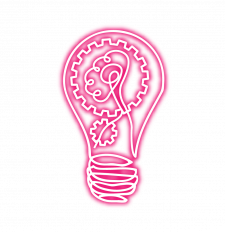Executive functioning skills integrate the cognitive, verbal, sensory, and motor skills we have learned through time in order to become effective individuals.
They are the abilities that help us to solve problems, begin and finish activities, and maintain our attention throughout the execution of a task.
Examples of executive functioning skills
- While playing , if an object isn’t visible, babies can still find it by playing peek-a-boo.
- When adults are communicating, the babies learn to focus and pay attention. When they are young, they copy others and subsequently learn how to communicate by using body language and expressions.
- Children learn how to problem solve with their peers and come up with a solution by talking through them together.
Development of Executive Functioning Skills by Age
No one is born with executive function abilities, but everyone has the ability to acquire them. Executive functioning skills are acquired from an early age. To perform tasks.
Throughout childhood and adolescence, the abilities are progressively strengthened and refined. When an individual reaches maturity, and the brain is fully developed (usually around age 23) executive functioning skills are developed, however they can continue to grow if necessary and worked on. .
It is influenced by our experiences and knowledge.
It is also important to note not everyone will be at the same age level as stated below. Those with ADHD, executive functioning disorder, traumatic brain injury, amongst other things will be delayed on the executive functioning skills continuum.
DEVELOPMENT OF EXECUTIVE FUNCTIONING SKILLS IN INFANCY (0-24 MONTHS)
The faces of family members become familiar to babies. They’re able to retain that knowledge and retrieve it when they recognize a face. Working memory has an impact on attachments that develop in infancy. When it comes to favorite toys and soothing things such as pacifiers, comforters and calming postures, working memory plays a role in remembering those things.
Emotional Control
Development of emotional control is observed at this stage when infants are comforted by familial caregivers because they can’t self-soothe, therefore they rely on familiar individuals to assist them deal with their feelings .
Attention
Infants begin to develop this executive functioning skill when they can make eye contact and follow items with their gaze. In the first year, the ability to pay attention grows rapidly.
Organization
During a child’s earliest years, he or she learns organization skills. It happens when they play matching games and learn that their toys and things go in specific areas
Planning
Planning abilities begin to emerge in infancy when babies start to focus on objects and make purposeful bodily actions like grasping and pointing.
During early learning years, up to the age of 12, planning abilities help an individual to grasp more complicated instructions and follow procedures to accomplish goals.
Flexibility
Flexibility is also growing. Toddlers learn to adjust to more and more shifts and changes in activity.
A child’s capacity to regulate impulses and maintain attention is relatively low at this age, although it improves by the second year.
Problem Solving
As a result, babies are born with natural problem-solving abilities, or reflexes. For instance, if a newborn is held upright on a table, he will step. An involuntary movement takes place.
Impulse Control
An individual’s inhibition is the capacity to repress their emotions and self-control at the right time. This skill is not evident in babies, but it involves “stranger danger” when a newborn responds to one adult, but not another.
Babies at this age participate in cause-and-effect play and find out ‘how things really work’ by using small physical movements and rudimentary playing abilities
Task initiation
Toddlers are able to start and finish projects that take up to 10-15 minutes on their own at this age.
Practical Application of Executive Functioning Skills at infancy age
Lap Games
Families have played games with their newborns for generations while holding them on their laps. However, all of them are predictable and incorporate certain fundamental principles that guide adult and infant conduct.
Baby’s ability to recall and regulate their own behaviour to match the game’s rules improves with repetition of the activity.
Peekaboo
Playing hide-and-seek exercises the infant’s working memory because he or she identifies who is hiding, and it also teaches fundamental self-control skills since the baby must wait for the adult to show himself or herself in certain variants.
In some variations, the infant controls the timing of the revelation; this gives valuable experience in controlling the tension around a surprise that’s supposed to be revealed soon.
Conversations
As babies grow older, pointing out and discussing fascinating items or occurrences assist them learn to focus their attention on something the adult has highlighted. With language learning, infants build a mental map that links words with objects and behaviours.
DEVELOPMENT OF EXECUTIVE FUNCTIONING SKILLS IN PRESCHOOLERS (3-5 years)
Working Memory
When children reach this age, they are capable of following along with songs and fingerplays with numerous steps and motions.
They are also able to read and follow chapters of story or comic books that demand expanded working memory.
Emotional Control :
Children’s executive processes that pertain to social interaction grow rapidly during preschool.
A child’s ability to communicate, compromise, and advocate for himself and others begins between the ages of 3 to 5, and he/she can be extremely persistent if they want something badly enough!
As a result, they become more adept at emotional regulation.
Organization :
The idea of “everything has a place” is a good one to impart at this age since children enjoy rules.
The hairbrush should always belong in the top bathroom drawer, and coats should always be hung on the hallway hook.
In the long run, they learn that their life will be a lot simpler if they’re consistent about putting things in the same location every time.
Flexibility :
Children also develop cognitive flexibility at this age, which is the ability to move between thinking about two different conceptions or to have numerous notions in mind at the same time
— for example, that an item can be recognized as a square, and/or as blue.
Problem Solving :
Basic games and riddles that mix language and movement may be completed by children at this age, and they also acquire decision-making skills and turn-taking during play to improve problem solving skills.
Task Initiation :
Toddlers are able to start and finish projects that take up to 30-40 minutes on their own at this age.
Self-Monitoring :
Children at this age also learn to hold their hands to themselves, wait their time, and follow the group plan.
Time Management:
Children begin to comprehend time concepts like seasons, days and weeks. They use visual image timetables to organise chores, and they learn waiting for things to happen.
Practical Application of Executive Functioning Skills At Preschool Age
Card and Board Games
Working memory, impulse control, and flexibility are among the executive functioning abilities that children in this age group practise when playing board games, because they are continuously strategizing and planning their actions ahead. Due to this, playing a board game like Chinese Checkers, Battleship, or Parcheesi is not only fun for them, but it also helps them develop essential cognitive abilities.
Quizzes and Puzzles
Children at this age are capable of completing puzzles and participating in quizzes that help them train their attention and problem-solving abilities, as well as their cognitive ability and working memory skills. Additionally, parents also utilize educational online gaming sites to help their children develop the abilities outlined above.
Physical Activities
Children enhance their working memory and self monitoring skills by playing physical games like Statue, Musical Chairs, and Simon Says.
DEVELOPMENT OF EXECUTIVE FUNCTIONING SKILLS IN ELEMENTARY AGE (5-12 years)
Working Memory
Throughout these years, kids learn to be autonomous with group activities and utilize prior information to new activities, allowing their memory to become a more reliable resource.
Attention:
The ability to focus on a single activity without being distracted as well as switching between activities becomes more common.
Organization:
Children begin to gather resources for everyday activities and start using checklists to keep track of chores and progress. As a result of direct training, the organizing abilities grow faster.
Planning
When playing games that require strategy and planning ahead, children are able to follow a series of predetermined procedures to reach a goal.
Flexibility
Children’s need for flexible focus rises rapidly in primary school as they must move between tasks, often several times in a single class session.
Time Management
During this time, students learn how to manage their time and distinguish between needed and non-required activities.
In the elementary years, students who have difficulty with focus continue to suffer in their teenage years as well.
Practical Application of Executive Functioning Skills At Elementary Age
Projects Around the House
Every action, from cleaning a room to mowing the lawn, are the practical example of executive function abilities. No matter what kind of project it is, it involves planning, executing, and monitoring.
Having your children do chores helps them become more responsible and helps them accept responsibility for their work. They’re also kept occupied, which is a plus.
Crossword or 3D games
A child’s thinking skills are improved by playing strategic mind games.
Most school tasks require students to solve problems, and they help prepare the mind to do so. To enhance attention span and working memory, they are also highly beneficial
As a result of working on them jointly, interaction occurs. That’s a fantastic way for parents to connect with their child, to show them how to tackle an issue and work through to a solution.,
Music , Dance, and Singing
Attention and working memory skills are enhanced by learning to play a musical instrument. Along with physical ability, this exercise requires working memory in order to remember the song.
According to certain studies, two-handed coordination has been shown to improve executive function,
DEVELOPMENT OF EXECUTIVE FUNCTIONING SKILLS IN TEENAGE (13-18 years)
Working Memory
Working memory is the ability to recall information and then apply it at a later time. It helps teens learn to retain and recall knowledge.
In addition to academics, working memory is useful in a variety of learning contexts. Teens rely on working memory to assist them in many ways :.
- Assist with reading and math problems.
- Problem-solve in the form of puzzles and story-problems
- When playing a game, use strategy and adhere to the rules to achieve victory.
- Follow directions that require a lot of steps.
- Understanding social circumstances at home, work, and school will help them in learning.
Attention Control
When a person enters the teenage phase, he/she is able to focus for longer periods of time or on specific goals, such as saving for a certain item.
In spite of distractions, he/she still establishes plans and carries them through.
During teenage, executive functioning abilities connected to cognition also substantially grow.
When an individual enters puberty phase, he/she begins to independently plan out the stages to larger undertakings, including collaborating with others to achieve goals.
Problem Solving
By the time children reach adolescence, they develop the ability to recognize issues in a variety of contexts such as at home, at school, at work, and among friends.
It is possible for them to solve problems on their own, but they will often go to adults for advice and assistance when they need it most.
Flexibility
Teenagers participate in a variety of structured activities and routines that are filled with unexpected occurrences and changes.
In this way, they learn to adapt in the moment, so that unpredictability causes considerably less stress as they get older and become more independent adults.
Impulse control
Preteens and teenagers continue to engage in dangerous actions, but they are more likely to adhere to safety precautions and conform to social standards.
Task Initiation
The need for task management and planning increases as projects and assignments get longer and require more complicated processes to accomplish.
Teenagers set objectives and take actions to attain them as they progress through high school.
It is during these years that students acquire and polish their planning, organization, time management, working memory and metacognition skills, among others.
Practical Application of Executive Functioning Skills At Teenage
Computer Games
The use of computer games is also a practical example of executive functioning skills in teens. Selective attention, problem solving, and planning skills are improved in games that involve continual monitoring of the surroundings and rapid reaction times.
Working memory is also challenged while navigating through complex imagined environments, such as those found in many computer games.
Theatre
Teenagers who take part in theatre plays memorize their roles, pay attention to their timekeeping, and regulate their conduct throughout a performance that is highly orchestrated and meticulously planned.
Learning the words and actions of a character requires a lot of attention and working memory on the part of the actor.
Sports
Competitive sports require the capacity to pay close attention to one’s own and others’ activities, make quick choices, and adapt flexibly to play. Exercise that is both difficult and ongoing helps to improve executive function.
DEVELOPMENT OF EXECUTIVE FUNCTIONING SKILLS IN ADULTS (18+ years)
Working Memory
Early adulthood is when people’s working memory capability is at its peak. They are capable of acquiring information from a variety of sources, storing it, and synthesising it to accomplish its objectives
Emotional Control
Emotions become more complicated when people enter the adulthood phase. This includes feeling empathy, sadness, or regret.
Emotional control also includes learning the most suitable and useful techniques to regulate different emotions, so they don’t interfere with everyday living.
Attention
By the time people reach adulthood, they know what causes distractions, and search for strategies to prevent being distracted from their responsibilities.
Planning
Being an adult,people are capable of coming up with several distinct strategies to accomplish a number of various objectives all at once and keeping them all up-to-date.
Flexibility
Early in adulthood, people adjust their calendars dynamically to suit shifting needs. They are capable of handling stress maturely at this stage.
Problem Solving
The ability to develop unique solutions to complicated issues and persevere through many options until a problem is resolved is possessed by adults who have strong problem-solving abilities.
Task Initiation
During adulthood, people are able to commence projects that can take up to 60 minutes and get started even when presented with bad situations or interruptions.
Time Management
Well-developed time management abilities in adulthood allows people to find and apply solutions that help them in managing their time more efficiently and change habits or plans according to their needs.
Self Monitoring
Upon reaching adulthood, people review their work for errors, keep track of our progress, and strive harder in the future to accomplish higher goals.
Practical Application of Executive Functioning Skills In Adults
When an adult leads a team involved in the planning and development of a new area of a city using executive function abilities.
He or she is responsible for determining the locations of the new buildings and roadways, considering emergency preparations, and collaborating with specialists from other fields.
When a project starts as a concept, it becomes a plan, then action, and finally completion. In the absence of strong executive function abilities, the strategy is unlikely to succeed.
Considering the fact that the human brain develops over a period of up to 25 years.
At 18 years of age, when we consider ourselves “adults”, the brain is still developing… with the most significant changes occurring in the frontal lobe, which is responsible for executive functioning skills.
Stay empowerED,
Nicole
Sources
https://lifeskillsadvocate.com/blog/executive-function-skills-by-age/
https://pathways.org/topics-of-development/executive-function/
https://developingchild.harvard.edu/resources/inbrief-executive-function/
https://www.slideshare.net/ryanwexelblatt/executive-function101ebook
https://www.theottoolbox.com/what-is-executive-function-in-child-development/
https://www.cognifit.com/science/cognitive-skills/inhibition
https://www.edutopia.org/article/helping-students-develop-executive-function-skills
https://www.frontiersin.org/articles/10.3389/fpsyg.2014.00388/full
https://theswaddle.com/how-to-boost-executive-function-in-preschool-kids-ages-3-5/
https://theswaddle.com/how-to-boost-executive-functioning-skills-in-children-between-ages-5-7/






